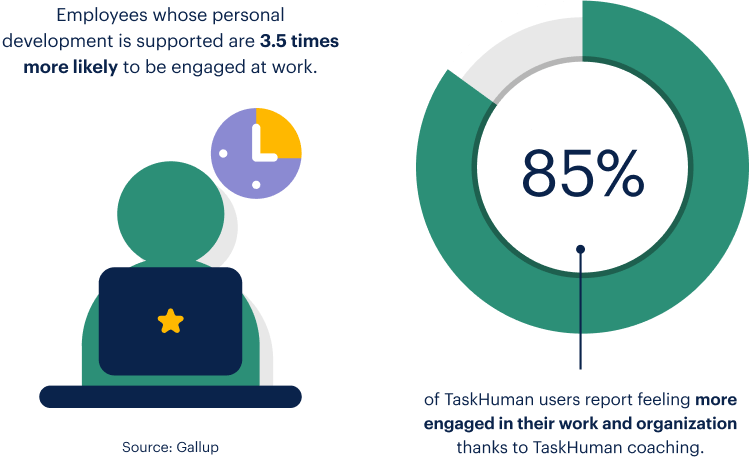
As coaching programs grow to meet the needs of expanding workforces, HR teams face a critical challenge: scaling coaching without compromising its effectiveness. How do you maintain quality, personalization, and measurable impact as more employees participate in coaching initiatives? Here, we explore practical strategies to help HR teams scale coaching programs while keeping efficacy intact.
1. Establish Clear Objectives And Metrics
Before scaling, ensure your coaching programs have well-defined objectives that align with organizational goals. Are you aiming to improve leadership skills, increase employee engagement, or support career development?
Equally important is measuring success. Conduct surveys and use metrics like engagement scores, employee retention rates, or productivity improvements. Organizations with clear coaching KPIs are over 50% more likely to report positive outcomes.
2. Invest In Scalable Technology
Technology is a game-changer when it comes to scaling coaching programs. Digital coaching platforms like TaskHuman enable personalized coaching at scale, connecting employees with a wide range of coaches and expertise on demand.
By leveraging AI-driven insights and virtual sessions, organizations can extend high-quality coaching to employees across geographies and time zones, eliminating traditional barriers to access.
3. Maintain Personalization Through Customization
Scaling often raises concerns about losing the personalized touch that makes coaching effective. To counter this, HR teams can:
- Use employee assessments to tailor coaching plans.
- Offer specialized coaching programs for well-being, professional, or leadership development.
- Allow employees to select coaches that align with their goals and personalities.
- Provide coaching tailored to specific roles and needs, such as high performers, front-line managers, or emerging leaders.

4. Empower And Sustain A Coaching Culture
65% of employees from companies with strong coaching cultures rated themselves highly engaged. Management and leadership are particularly pivotal in fostering this culture; equipping them with coaching skills creates ripple effects throughout the organization. These employees become not only leaders but climbers and masters who are catalysts for growth and mentorship, fostering a coaching culture that thrives at every level.
Developing a cadre of internal coaches—managers or senior employees trained in coaching skills—is a cost-effective way to expand capacity. These internal coaches can:
- Provide ongoing support and mentorship
- Reinforce a coaching culture within teams
- Offer insights rooted in the organization’s unique context
By empowering managers to become coaches, you cultivate a generation of seekers—employees who are self-aware, growth-oriented, and committed to continuous development. This seeker philosophy, rooted in self-awareness and personal growth, ensures that your coaching culture takes root and thrives throughout your organization.
Additionally, a coaching culture amplifies the benefits of coaching programs by embedding coaching principles into daily interactions. Encourage:
- Peer-to-peer mentoring initiatives
- Open communication and continuous feedback
- Managers adopt coaching mindsets in their leadership styles
5. Create Processes Without Sacrificing Flexibility
To ensure consistency as coaching programs grow, create standardized frameworks for:
- Setting coaching objectives
- Structuring sessions
- Tracking progress and outcomes
However, remain flexible to accommodate unique employee needs. Striking this balance ensures quality without stifling the personalized nature of coaching.
For example, standardized programs can guide initial coaching sessions, but coaches should have the autonomy to adapt sessions based on individual employee challenges or goals. This hybrid approach helps maintain the essence of personalized coaching while ensuring that the program scales effectively.
6. Regularly Evaluate And Adapt
Scaling is an iterative process. Continuously gather feedback from employees and coaches to identify what’s working and what needs improvement. Use data analytics to spot trends and refine your approach.
For example, if employees in certain regions report lower satisfaction, adjust the coaching offerings and resources. In addition to surveys, track metrics such as session attendance, program completion rates, and post-coaching performance improvements. Analyzing these data points allows HR teams to proactively address challenges and optimize the coaching program for diverse employee needs.
Regular evaluation also helps ensure alignment with organizational goals. As priorities shift, coaching objectives and resources may need to be reallocated. This adaptability is key to maintaining relevance and impact over time.
Conclusion
Scaling coaching programs doesn’t have to mean sacrificing quality. By leveraging technology, maintaining personalization, and fostering a coaching culture, HR teams can expand coaching initiatives while ensuring they remain impactful. TaskHuman is here to help you navigate this journey, offering scalable solutions designed to meet the unique needs of your workforce.
Ready to scale your coaching program effectively? Contact TaskHuman today to learn more.